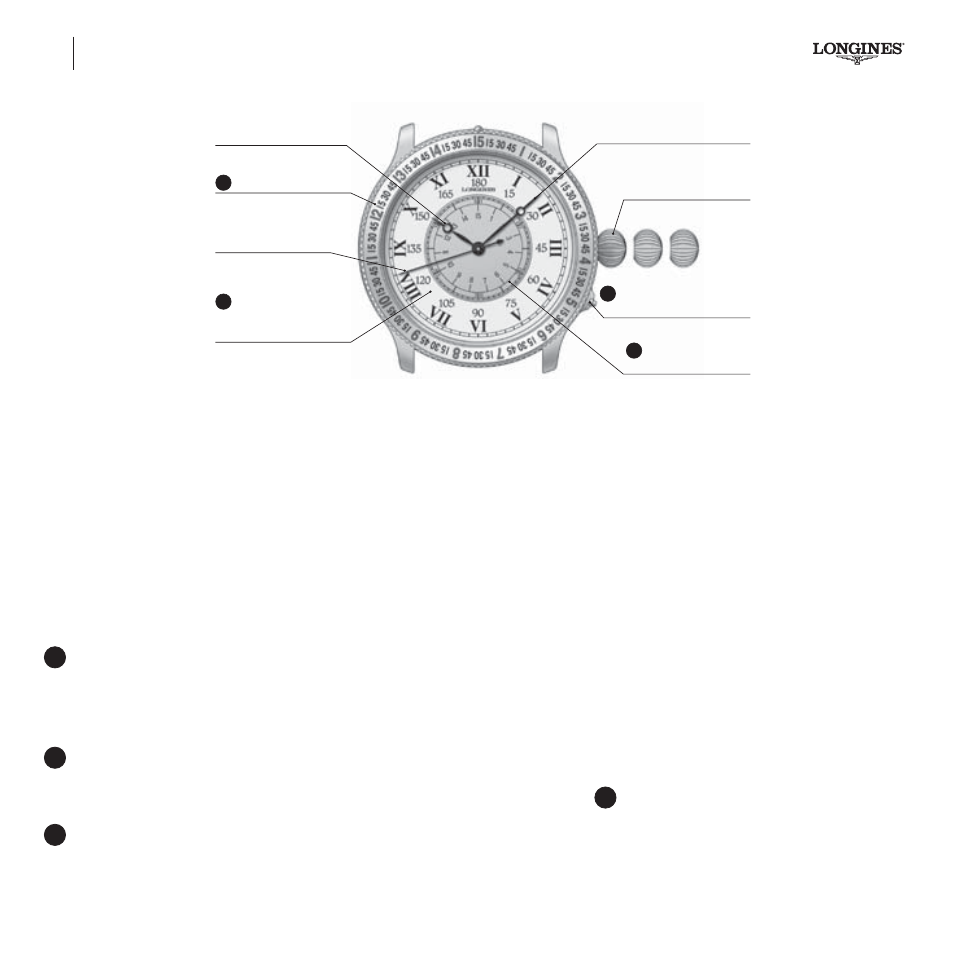Longines DolceVita User Manual
Page 26

The original Lindbergh Hour Angle Watch was designed
by Charles Lindbergh as a navigational aid for pilots.
Used with a sextant and a nautical almanac, this watch
enables the wearer to quickly determine the hour angle
from Greenwich, in other words his or her longitude.
Thanks to its ingenious combination of dials, this time-
piece differs from an ordinary watch in three ways:
A
The indications on the dial are designed in such a
way that they show simultaneously the time (in hours,
minutes and seconds) and the hour angle (in degrees
and minutes of arc).
B
The rotating central dial shows the seconds and it
can be turned using the crown in order to synchronise
the watch with a time signal.
C
The bezel can be rotated to correct the equation of
time (which varies from one day to the next).
The Lindbergh Hour Angle Watch Automatic watches
66
1
2
3
L614 / L699-Lindbergh
Hour hand
Seconds hand
Rotating bezel
Minute hand
3-position crown
Push-piece to open the
case-back
Central rotating
seconds dial
Central rotating hours,
minutes, seconds, hour
angle dial
D
C
A
B
3-position crown
Adjusting the time and stop seconds
(See page 59)
Synchronising the watch with a time signal
In the intermediate position 2, the crown can be used to
turn the central dial (in either direction). Pull the crown
out to the intermediate position 2 and turn the central
dial so that the seconds hand points to the “60/15”
position on the last pip of the time signal. Push the
crown back in to position 1.
Push-piece
D
at 4 o’clock
This is for opening the case back, thus revealing the
movement through a protective sapphire glass.